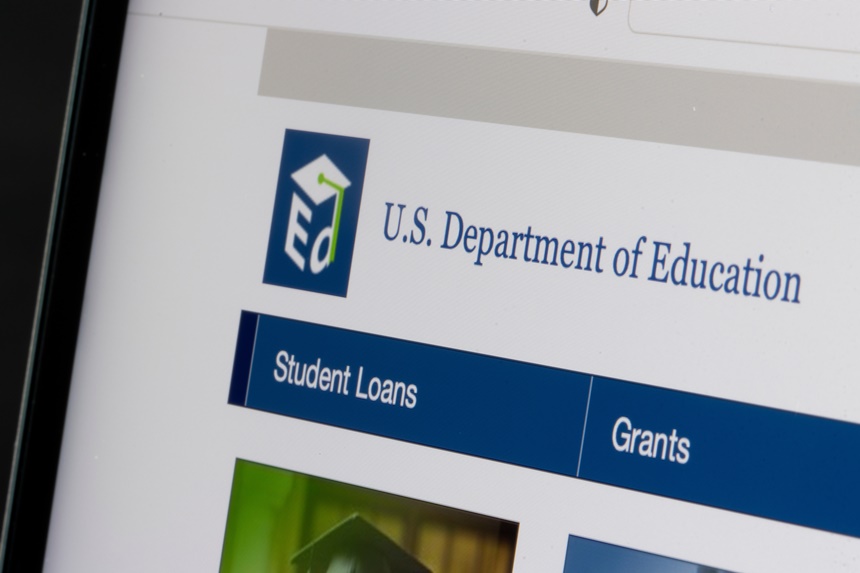Steve Weisman is a lawyer, college professor, author, and one of the country’s leading experts in cybersecurity, identity theft, and scams. See Steve’s other Con Watch articles.
In June, the Supreme Court ruled that President Biden’s program for student loan forgiveness was unconstitutional. Interest on student loans began accruing again on September 1, and repayments resumed in October, leaving many people scrambling as to how to repay their loans.
More than 43 million Americans have federal student loan debt with a combined outstanding balance of more than $1.6 trillion, so it is no surprise that scammers are focusing their attention on these borrowers through false promises of debt relief.
Authorities are doing what they can to thwart these illegal operations. In August, the Federal Trade Commission shut down scammers operating Express Enrollment LLC and Intercontinental Solutions LLC, two California companies that falsely represented they were affiliated with the U.S. Department of Education and could provide debt relief under “Biden Loan Forgiveness.” Victims of their scam paid approximately $8.8 million in illegal processing fees to receive non-existent help.
According to Samuel Levine, the director of the FTC’s Bureau of Consumer Protection, “During a period of uncertainty for borrowers saddled with student loan debt, these defendants bilked consumers out of millions of dollars with junk fees and phony promises of loan forgiveness and lower monthly payments.”
The FTC was able to stop these companies, but there are still many bad actors ready to steal your money. In the first two weeks of September alone, scammers posing as companies purporting to help eliminate student loans placed more than 350,000 illegal robocalls, according to CBS News.
Some of the false claims used by scammers in their communications include:
- “Act immediately to qualify for student loan forgiveness before the program is discontinued.”
- “Your student loans may qualify for complete discharge. Enrollments are first come, first served.”
- “Student alert: Your student loan is flagged for forgiveness pending verification. Call now!”
The truth is that scammers always try to make people think they must act immediately in order to get benefits. Also, no loans are “flagged for forgiveness.” Many of these scams promise quick loan forgiveness, which is unrealistic. No one has the ability to negotiate a special deal with your federal loan servicer.
In addition, you should never pay any upfront fees for student loan debt relief assistance. Those fees are illegal and are a sure indication that you are being conned.
Scammers also often ask for your StudentAid.gov username and password. Neither the U.S. Department of Education nor any of its affiliated agencies ever ask for your StudentAid.gov credentials. Providing this information can enable criminals to sign loan documents and make changes to your federal student loan account. If you haven’t done so already, it’s a good idea to add dual factor authentication to your account.
Crooks also use old fashioned snail mail that may appear legitimate: they will use a name that suggests it’s affiliated with the federal government or include a legitimate-looking seal from a real or phony federal agency. Interestingly, for letters that deal with college loans, the scammer’s letter often contains spelling and grammatical errors.
Criminals also contact their targeted victims through text messages, which can be persuasive since the Department of Education does use text messages. However, official text messages from the U.S. Department of Education only come from the numbers 227722 and 51592. If a text message you receive purporting to be from the U.S. Department of Education does not appear to come from either of those numbers, you can be confident that it is a scammer contacting you. Unfortunately, even if you receive a text that appears to come from either of those numbers, you still can’t trust it because it is simple matter for a sophisticated criminal to “spoof” those numbers to make it appear that the text is legitimate.
As for email, the only legitimate addresses used by the U.S. Department of Education are [email protected], [email protected], and [email protected]. As with text messages, even if the email appears to come from one of those legitimate email addresses, you are better off not providing personal information or clicking on any links in those emails in case they are phony. Your better course of action is to contact the U.S. Department of Education through their official website.
For information you can trust about federal student loan repayment option, go to studentaid.gov/h/manage-loans. There you can learn about loan deferments, forbearance, and repayment and loan forgiveness programs. There is never an application fee. If you owe private student loans, contact your loan servicer directly. You can also look into student loan refinancing rather than consolidating the loans. Refinancing student loans can result in a lower interest rate.
You can also contact your federal loan servicers who are affiliated with the U.S. Department of Education and do not charge any fees for assisting you with your student loans. Here is a list of the only official federal student loan servicers.
Become a Saturday Evening Post member and enjoy unlimited access. Subscribe now



